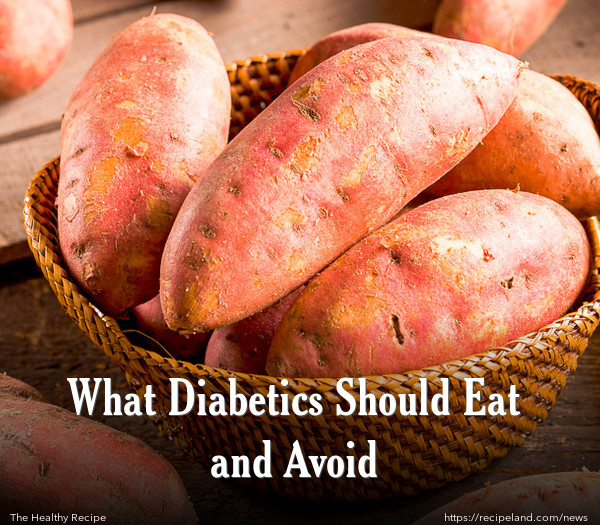Diabetics are often acutely aware of most of the foods that they should or should not be eating, based on the sugar and carbohydrate content. Controlling blood sugar levels is critical for protecting the eyes, heart, kidneys and other organs from damage due to long term problems. But, there is more to treating diabetes with nutritional interventions than just avoiding sugar and controlling carbs.
Amy Hess Fischl, RDN, a registered dietician and diabetes educator at the University of Chicago Diabetes Centre explains that there are certain foods that diabetics can eat that can help to lower blood pressure and cholesterol, and help them lose weight. These are often some of the health problems that can lead to the development of diabetes in the first place.
First, let’s review some of the foods that you should be eating if you are diabetic. Keep portions under control, and focus on getting plenty of nutrients and vitamins, especially vitamins A, C, and E, and potassium, calcium, fibre, and magnesium.
1. Whole Grains
Whole grains may top the list for diabetics when it comes to foods they should eat. Empty carbs are definitely off limits, but whole grains like whole grain bread, quinoa, and bran, contain large amounts of fibre. The fibre slows food digestion and extends the amount of time it takes the body to process the carbs, meaning there is less likelihood of blood sugar spikes. Fibre will keep you satisfied longer. Certain whole grains, like pearled barley and oatmeal contain potassium, too.
2. Salmon
The big boost of omega-3 fatty acids that you will get from salmon help to protect the heart and reduce the risk of developing heart disease. They can also help with other problems related to diabetes, like high blood pressure. The American Diabetes Association recommends that you get two servings per week of omega-3-rich salmon. If you don’t care for salmon, try sardines, herring, or mackerel. Not only are you getting great omega-3 fatty acids, but plenty of lean protein, too, which keeps you full and helps control blood sugar.
3. Sweet potatoes
Sweet potatoes contain plenty of vitamin A and fibre, which is great for helping to control diabetes. The carbs that you find in sweet potatoes have less of an effect on your blood sugar than white potatoes, too. Eating sweet potatoes can help keep blood sugar steady, just be sure to watch your portion size. Add walnuts as a topping for a nice flavour and protein boost!
4. Breakfast
Those with diabetes should be careful to never skip breakfast, and make sure that their breakfast is well balanced. Diabetics who eat breakfast experience fewer spikes in blood sugar than those who skip the first meal of the day. When your blood sugar is stable, you will have fewer cravings, which can help control blood pressure, cholesterol, and weight. Make sure your breakfast contains a nice balance of protein, fibre, and healthy fats so that you can stay full until lunch.
5. Ginger
Research has shown that eating ginger, or adding it as an ingredient, can help to stabilize blood sugar levels. A group of 33 adults who had non-insulin dependent diabetes took a pill containing the equivalent of ½ tsp ginger root each day for 12 weeks, and that this improved their average blood sugar levels compared to those in a placebo group. Discuss ginger with your doctor before you begin supplementing, as it may interact with certain blood thinning medications. When you get cleared, add it to stir fry or make some tea!
6. Cinnamon
Cinnamon not only adds some spice to your meals, but it can also help control blood sugar levels. A recent study examined 69 adults that had type 2 diabetes and found that a daily dose of cinnamon helped control blood sugar better than a placebo. The higher the dose of cinnamon, the better the blood sugar was controlled.
Here are a couple of foods that you can consume, as long as they are in moderation:
1. Nuts
Although nuts contain high levels of fibre and magnesium, as well as healthy unsaturated fats. But, they also contain a lot of calories, and should be consumed in moderation as part of a healthy lifestyle.
2. Cocktails
While you do not necessarily have to completely avoid alcohol, you should be mindful of how much you actually drink. Alcohol can affect blood sugar more significantly than other types of carbohydrates. Be sure that if you are taking insulin or any other medications that you ask your doctor about safe levels of alcohol. Once cleared, it is probably good to follow the American Cancer Society’s recommendation of one drink per day for women and up to two drinks per day for men. Be sure to pay attention to your calories if you are adding alcohol to your diet!
3. Salt
When consuming salt, it is important to realize that less is more. Especially for diabetics. While salt is not completely off limits, it should be limited and used sparingly. Choose healthy whole foods with great natural flavours first, and add a touch of salt if you must.
Finally, even though some of these foods are okay in moderation, those who are diabetic should be careful to avoid foods like jelly, jam, preserves, and fruit juices. These foods are packed with sugar, and even the natural forms can cause dangerous blood sugar spikes. Opt for whole fruits over juices or jams, as you will get the benefits of more nutrients and vitamins this way, too.










Comments